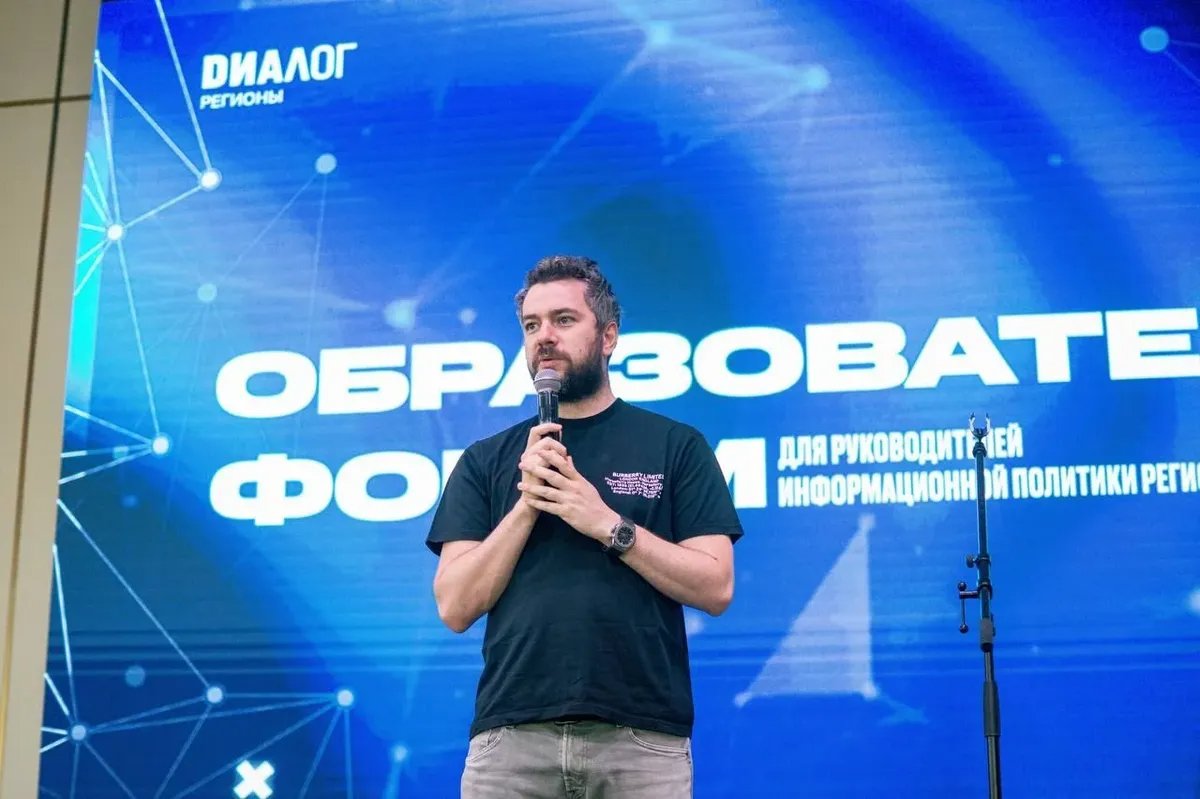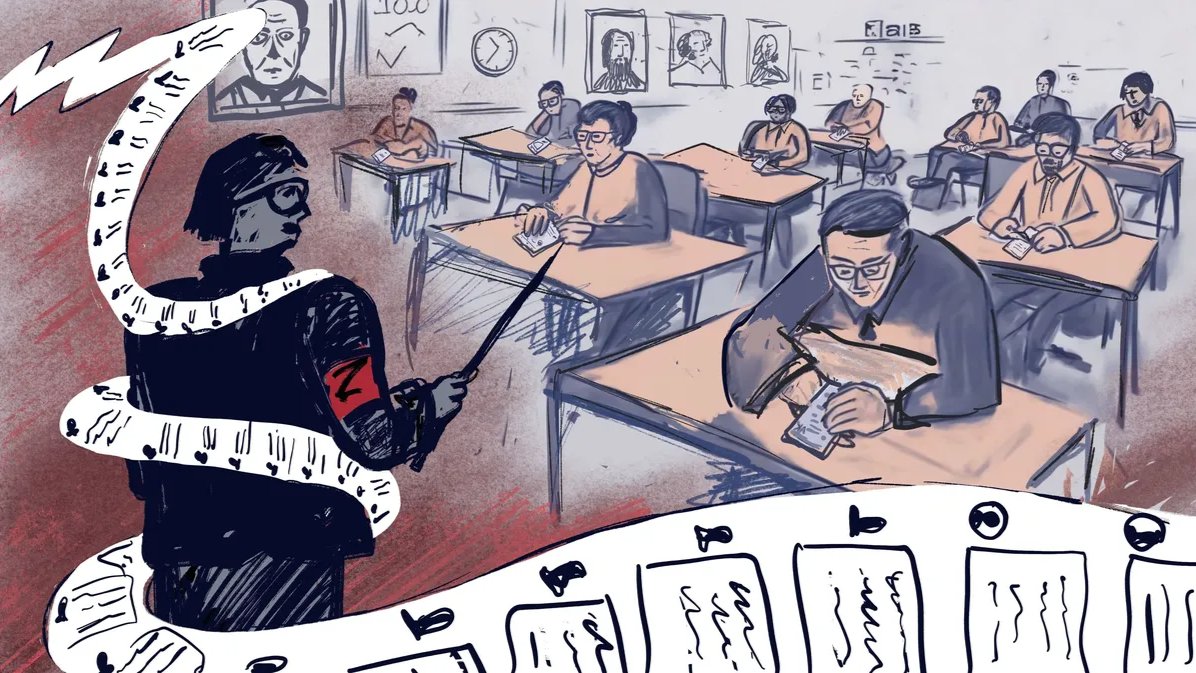Russia’s army of pro-regime “trolls” on the country’s main social media site VK continues to grow, and their ranks are increasingly made up of real people rather than bots. A data investigation by Novaya Gazeta Europe has found that over 600,000 pro-war posts made on the site were written by state sector employees following official guidelines. How do pro-government commentators ensure they dominate Russian social networks, who coordinates the effort, and does it really benefit the Kremlin?
In the two days following the Russian invasion of Ukraine last February, seven identical posts were published on VK in which the following text was included:
"Technical instructions: post text and illustration on your social media pages. Report back with a link to your posts (Important! Posting as stories does not count, only links to posts will be accepted).”
Next came a quote from the head of the ruling United Russia faction in the State Duma, who explained the “meaning” of the invasion of Ukraine:
"The West has done nothing to stop this nightmare and to protect human life on the territory of the [Donetsk and Luhansk] people’s republics. The most important thing now is to establish peace in Ukraine, protect people and stop the endless killing in the south-east. We are obliged to protect people and to stop this years-long massacre. We certainly support the decisions made by our leader Vladimir Putin.”
These posts have still not been deleted, despite quite clearly suggesting that certain Russians were being told what to post in an attempt to control online reaction to the war. The profile picture of one user who posted the text on her VK page no less than three times, was her with the Russian flag, and she was subscribed to the United Russia group. She also posted other duplicate texts in the early months of the war, many of which were similarly pro-United Russia.
In this case, the online agitprop copiers weren’t very careful about hiding the source of their posts, but it's usually far trickier to identify posts written according to handed down instructions, making the scale on which the Russian state is attempting to pass off systematically directed support as a genuine groundswell of public opinion — “astroturfing” as it’s known — particularly hard to assess.
To do this, we collected over 1.3 million VK posts with pro-war hashtags and analysed them using machine learning.
According to the most accurate estimates, almost half of the posts (616,000, or 45%) were copied, i.e. the text was word-for-word identical to at least two other posts.
These posts are usually published in sets, and tend to come in groups of 10 identical posts on average. The total number of unique texts that users copied was 59,000.
The largest group of identical pro-war posts published on one day contained 775 posts. That number grew over the following few days and eventually reached 1,140.
In our sample, 102,000 users wrote pro-war posts, of which 26,000 were identical. The majority of these posts weren’t made by fake profiles or bots: each user had at least a few dozen friends, photos, and content on their pages.
Around 83% of users who copied and pasted pro-war posts did so on more than one occasion, averaging eight copied posts per person.
Some users posted thousands of pro-war posts in the one-and-a-half years since the Russian invasion of Ukraine. One United Russia municipal deputy from the city of Volgograd took the biscuit in that category, however, having published an extraordinary 9,574 pro-war posts in that time.
According to Anton Mikhalchuk of the Free Russia Foundation, an international organisation supporting civil society and democratic development in Russia, in cases where such online activity is not the product of a troll farm, it is most likely to have been carried out by state sector employees under orders from their superiors.
“If you’re a real living, breathing Putin supporter, you’ll still never be able to write 200 posts supporting him … In these repeated posts we can see the work of state employees: they all write identical posts with messages of congratulations, mentioning certain officials,” he explains.
This is also confirmed by our analysis: the percentage of those publishing pro-war posts who were state sector employees (around a third of users in our selection listed their occupation) is several times higher than the proportion for random posts, the control group we used for our data. State sector employees account for 67% of those who copy and paste pro-war posts, 51% of those who write their own pro-war posts, but just 15% of authors of general posts.
We attempted to contact 60 people who had posted copied pro-war material on VK. Most of them read our message but ignored it, while some answered our question whether they had received instructions to post on VK with a “no”, and other people immediately blocked us.
Who is behind this?
Before the outbreak of the war, according to the Free Russia Foundation’s Anton Mikhalchuk, there were three main sources for the pro-regime propaganda spread on VK — the late Yevgeny Prigozhin’s infamous troll factory, the aforementioned Dialogue, and the Kremlin Administration.

Vladimir Tabak — director of Dialogue. Photo: Dialogue / Telegram
In September, independent Russian news outlets Meduza and iStories published a detailed investigation into Dialogue, which creates and disseminates propaganda in Russia, including via pro-government posts on Russian social networks.
In 2022, 6.5 billion rubles (€67 million) were allocated from the Ministry of Digital Development’s budget to fund the enterprise, and by 2024, a subsidiary organisation called Dialogue Regions is due to receive government funding to the tune of 24 billion rubles (€248 million).
Dialogue Regions oversees the writing of pro-Kremlin posts on the official pages of governors, city administrations, regional ministries, schools and kindergartens. For example, recruiting teachers to write such posts is usually done through the Forum of Classroom Teachers, which is organised jointly by Dialogue and the Ministry of Education. All that’s required is for a participant to have open social networks, the content of which “will be helped by Dialogue staff”.
A Novaya Gazeta Europe source close to the Presidential Administration confirms that Dialogue is the connecting link between the administration which develops and publishes topics for propaganda posts, state sector organisations and United Russia.
Kemerovo — the most active region
We tried to determine whether pro-war copying and pasting was a regional or federal initiative. We calculated that instructions for publishing posts were made at regional level if over 80% of authors publishing posts with identical texts live in the same region. “Regional” texts accounted for 65% of the total. So publishing identical posts is an activity that takes place at regional rather than federal level.
The Kemerovo region in southwestern Siberia greatly surpasses all other regions in the number of instructions for publication: 76% of clusters of identical posts specific for the regions were written by users from Kemerovo.
If we calculate the contribution of Kemerovo users for all identical posts, and not just “regional” ones, we obtain a figure of 49%.
In other words, in terms of the number of identical posts it produces, the Kemerovo region is as productive as the rest of Russia put together, despite its inhabitants making up just 1.8% of the country’s population.
If we create a graph representing the number of posts per day containing the word “denazification”, we may see many drastic spikes, each of which represents a group of identical posts made by users from the Kemerovo region on the same day.
If we look at the total number of pro-war posts, and not just ones that have been copied, Kemerovo is still well ahead of the rest: 24% of posts whose authors indicated their city were written by users from the Kemerovo region.
Pro-war posts are written most frequently by residents of the Kemerovo region
Number of pro-war posts per 1,000 residents
* Occupied by Russia
Source: posts on VK, calculations by Novaya Gazeta Europe
“Some regions are clearly going to extremes,” says a Novaya Gazeta Europe source close to the Presidential Administration.
In such cases, the source believes, the initiative usually comes personally from the regional governor, who in Kemerovo’s case is Sergey Tsivilev, whose enthusiasm may well be linked to the fact that in 2007 Tsivilev married Vladimir Putin’s niece.
What else do these instructions contain?
Despite being by far the most prominent example, Kemerovo is not the only Russian region to stand out for its state sector employees’ anomalous level of activity on VK.
After the outbreak of the war, posts by an online flashmob began to appear on VK dedicated to the memorialisation of the Battle of Stalingrad, with users posting texts about the heroes of the battle. Almost all of these posts were published by users from the Volgograd region, where Stalingrad (now known as Volgograd) is located.
At the end of November last year, the flashmob suddenly stopped. On the graph you can see that there’s just one group of posts about the Battle of Stalingrad that was not part of the online flashmob. That was published in June — again by a VK user from Kemerovo.
There are also initiatives that appear to be launched at the federal level. For example, groups of posts containing the surname “Medvedev” were usually published by users from multiple regions. For example, on 6 October 2022 users wrote that Medvedev had announced the creation of regional departments in the occupied DPR, LPR, Zaporizhia and Kherson regions.
Another small detail may be seen on the graph: in Sevastopol posts about Medvedev began to appear in February 2023, and since then have appeared regularly.
Usually, posts that are copied contain boilerplate phrases in support of the war. The second most popular topic of copied posts is the humanitarian aid typically for soldiers provided by Russia’s ruling party United Russia. There are also many stories about the “heroic feats” of Russian soldiers, descriptions of military-political events, campaigns in support of the special military operation and quotes from Russian officials.
Similar tendencies may be seen in comments by bots. The anonymous head of the project Lovushka povara, which studies bots commenting on VK, says that while the regional activity of trolls and “copy-pasters” has not changed much, the absolute number of comments has increased by two to three times compared to the pre-war period — it is now 20-25,000 per day on average.
There is reason to believe that the same company from Moscow is working in the majority of regions, the analyst says. “The increased activity of bots and pro-government accounts often occurs before elections. This year the project noticed a drastic rise in posts in Khakassia, where this had not been seen before.”
“This is also done to mask public opinion, so people cannot express their real emotions and views. Budgets worth millions of rubles will probably be allocated for this. And the more money is allocated to the work, the worse the result will be,” the expert concluded.
Join us in rebuilding Novaya Gazeta Europe
The Russian government has banned independent media. We were forced to leave our country in order to keep doing our job, telling our readers about what is going on Russia, Ukraine and Europe.
We will continue fighting against warfare and dictatorship. We believe that freedom of speech is the most efficient antidote against tyranny. Support us financially to help us fight for peace and freedom.
By clicking the Support button, you agree to the processing of your personal data.
To cancel a regular donation, please write to [email protected]

